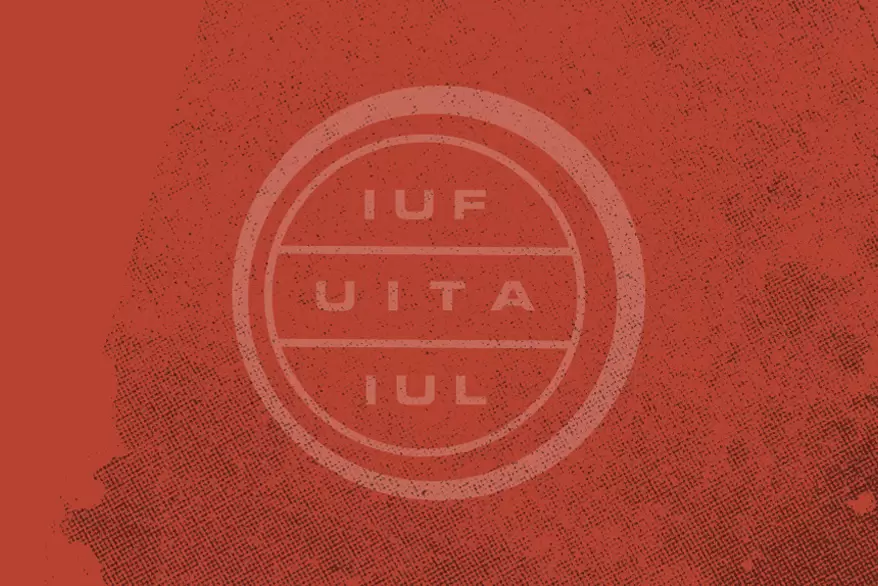The IUF Rules commit us to “support all efforts aimed at securing a lasting peace based on freedom and well-being for all.” They further state that “it is incumbent on the labour movement, as the basic progressive force in society, to utilize all appropriate means to successfully assert the general interest of the people to determine their own economic and social destinies, and secure freedom, wellbeing, security and peace.”
But as the number of conflicts around the world continues to increase how do we work for peace? What information can we trust? What tools do we have at our disposal? One key tool is ensuring the application of international laws aimed at protecting the victims of war. As we rely on the standards of the International Labour Organisation as the foundation of international labour law so we can rely on the UN instruments designed to build and sustain peace.
On December 29, 2023 the Government of South Africa invoked one such law, the UN Convention on the Prevention and Punishment of the Crime of Genocide, to call on the International Court of Justice (ICJ), the principal judicial organ of the United Nations, to institute proceedings against Israel concerning alleged violations in the Gaza Strip of Israel’s obligations under the Convention.
On January 26, 2024, the ICJ issued provisional measures. Its judgement starts by recalling “the immediate context” in which the case was presented. “On 7 October 2023, Hamas and other armed groups present in the Gaza Strip carried out an attack in Israel, killing more than 1,200 persons, injuring thousands and abducting some 240 people, many of whom continue to be held hostage. Following this attack, Israel launched a large-scale military operation in Gaza, by land, air and sea, which is causing massive civilian casualties, extensive destruction of civilian infrastructure and the displacement of the overwhelming majority of the population in Gaza.”
The Court stated that it was “acutely aware of the extent of the human tragedy that is unfolding in the region and is deeply concerned about the continuing loss of life and human suffering.”
In assessing the impact of the conflict, the ICJ noted “that the military operation being conducted by Israel following the attack of 7 October 2023 has resulted in a large number of deaths and injuries, as well as the massive destruction of homes, the forcible displacement of the vast majority of the population, and extensive damage to civilian infrastructure. While figures relating to the Gaza Strip cannot be independently verified, recent information indicates that 25,700 Palestinians have been killed, over 63,000 injuries have been reported, over 360,000 housing units have been destroyed or partially damaged and approximately 1.7 million persons have been internally displaced.”
Based on the evidence presented, the ICJ’s provisional measures call on Israel “in accordance with its obligations under the Genocide Convention, in relation to Palestinians in Gaza, take all measures within its power to prevent the commission of all acts within the scope of Article II of this Convention, in particular: (a) killing members of the group; (b) causing serious bodily or mental harm to members of the group; (c) deliberately inflicting on the group conditions of life calculated to bring about its physical destruction in whole or in part; and (d) imposing measures intended to prevent births within the group.”
The Court also stated that Israel “must take immediate and effective measures to enable the provision of urgently needed basic services and humanitarian assistance to address the adverse conditions of life faced by Palestinians in the Gaza Strip.”
The Court emphasized “that all parties to the conflict in the Gaza Strip are bound by international humanitarian law. It is gravely concerned about the fate of the hostages abducted during the attack in Israel on 7 October 2023 and held since then by Hamas and other armed groups, and calls for their immediate and unconditional release.”
Israel now has one month to submit a report to the Court on all measures taken to give effect to the provisional measures Order.
The IUF supports the implementation of the provisional measures required by the ICJ. They provide a tangible pathway toward peace in the Middle East, but they must be supported globally. The IUF joins our sister global unions in calling for the following actions from the international community:
- All State Parties to the Genocide Convention to fulfil their obligation to prevent genocide: The UN Security Council and member states must take collaborative action to ensure that the provisional measures are implemented in full.
- International Criminal Court prosecutor must expedite investigations into allegations of war crimes and crimes against humanity committed by Israel and Palestinian armed groups: A thorough and independent investigation is crucial to bring perpetrators to justice and prevent future violations.
- World leaders to prioritise diplomacy and dialogue over violence: Secure the release of all hostages and work towards an immediate and lasting ceasefire that guarantees the safety and security of all Palestinians and Israelis.
